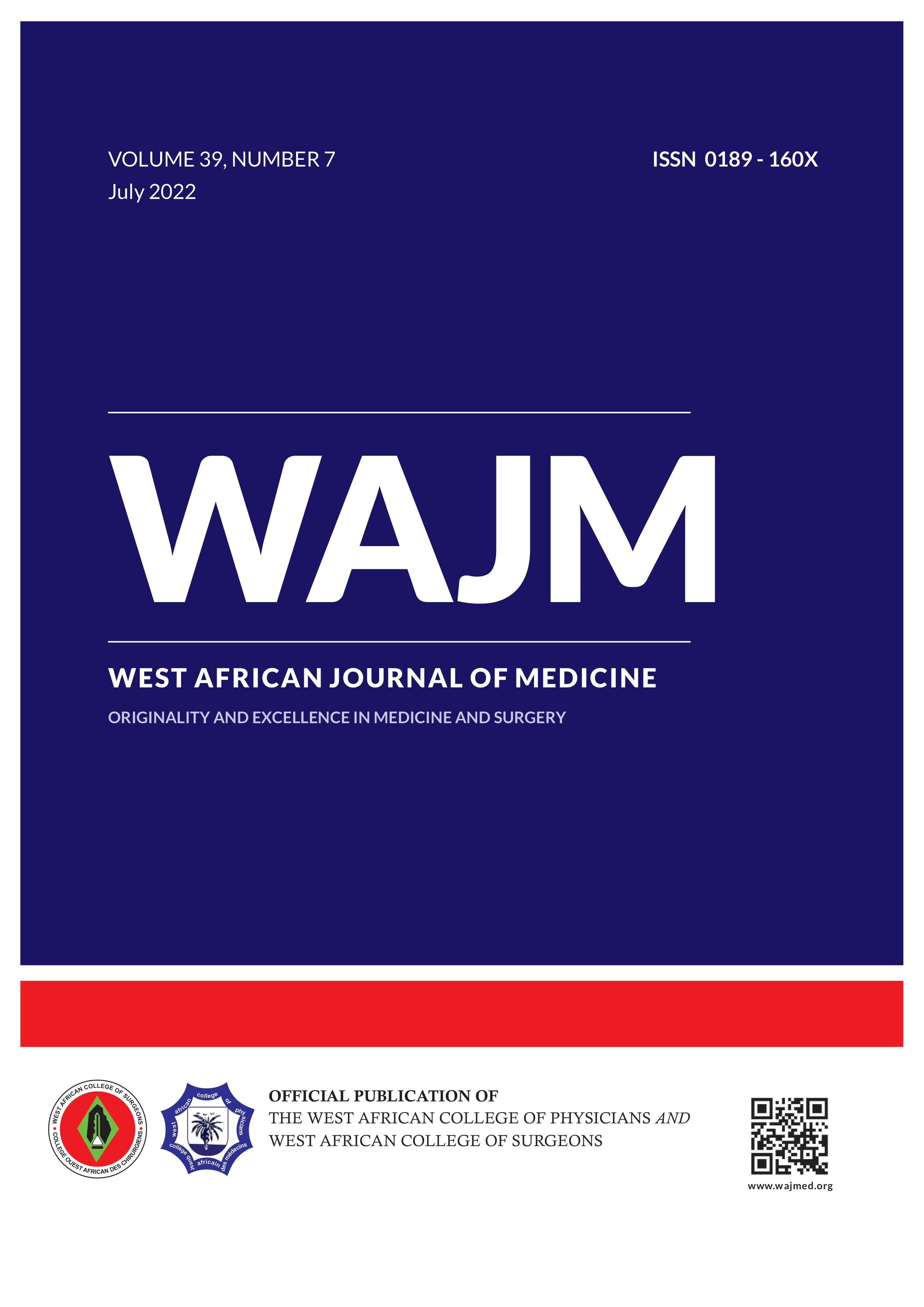ORIGINAL: Impact of SARS-CoV-2 Pandemic on Antiretroviral Access at a Large Treatment Centre in Lagos, Nigeria
West Afr J Med . 2022 Jul 31;39(7):703-707.
Keywords:
Antiretroviral; COVID-19; Drug pick-up; HIV; Lockdown; SARS-CoV-2.Abstract
Abstract in English, FrenchIntroduction: The SARS-CoV-2 pandemic has ravaged the world with significant implications on the socio-economic and health status of individuals. Several measures were put in place to curtail the pandemic especially movement restrictions. The effect of this pandemic and the restriction measures could further compound the health needs of PLWHA. This study thus described the trend in access to HIV/AIDS care services before and during the COVID-19 induced lockdown and the possible consequences on their treatment outcome.
Methods: A secondary analysis of client data was carried out at the HIV clinic of the Nigerian Institute of Medical Research. The sociodemographic and clinical data [type of ART, duration on ART, clinical services 3-months before and during the COVID-19 induced Lockdown] were extracted from the electronic medical records. Data obtained was analyzed using the SPSS version 22.0.
Results: The median age of PLWHA was 45 years (IQR: 39-51), with the predominant age group being 25-49 years (65.4%). The majority were females (68.7%), married (59.5%), had at least secondary education (82.8%), and employed (81.5%). The median duration on ART was 102 months (IQR: 67-138) with the majority on non-Protease Inhibitor based regimen (77.7%). In the 3 months before the lockdown, there was an increase in drug pick-up of approximately 25% over the booked appointment compared to a decline of 40% when the lockdown was enacted.
Conclusion: The significant decline in drug pick-up during the SARS-CoV-2 pandemic raises the need for measures to ensure continued access to drugs and care among PLWHA.
Keywords: Antiretroviral; COVID-19; Drug pick-up; HIV; Lockdown; SARS-CoV-2.


